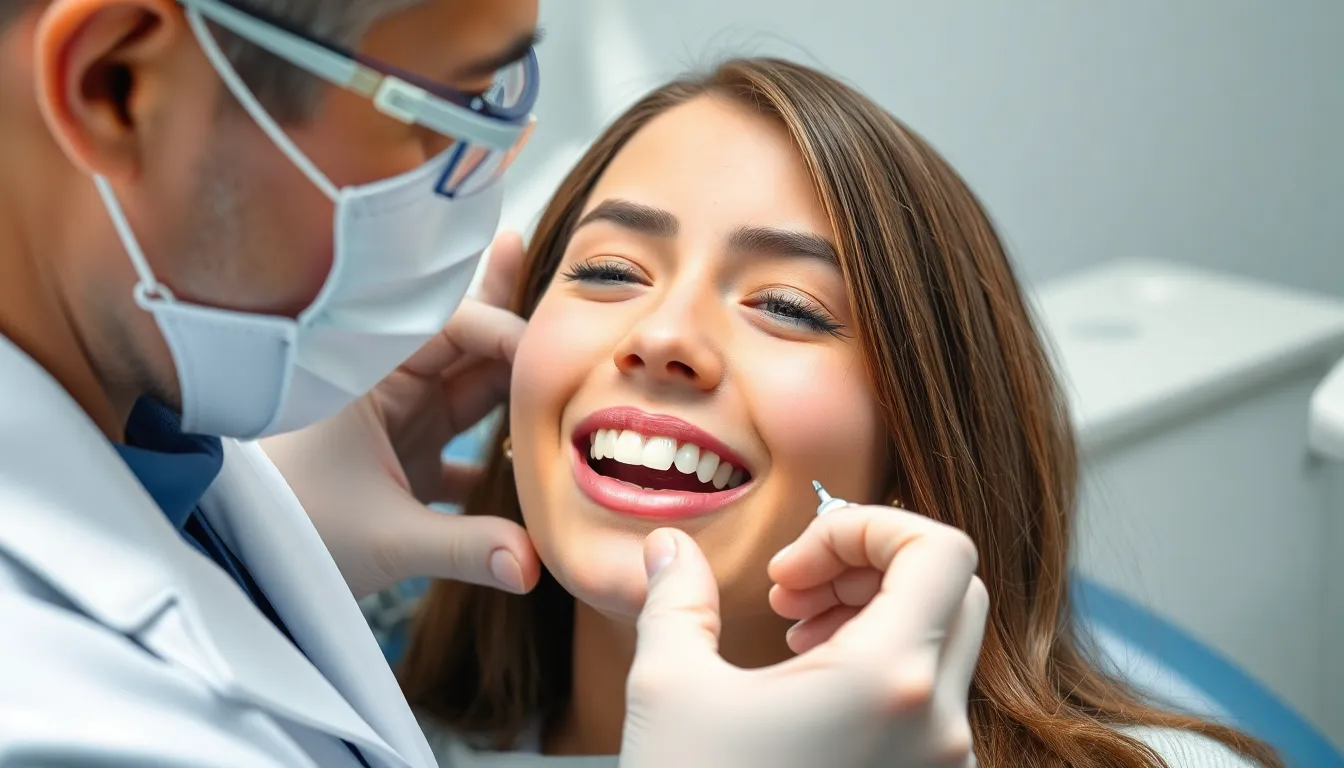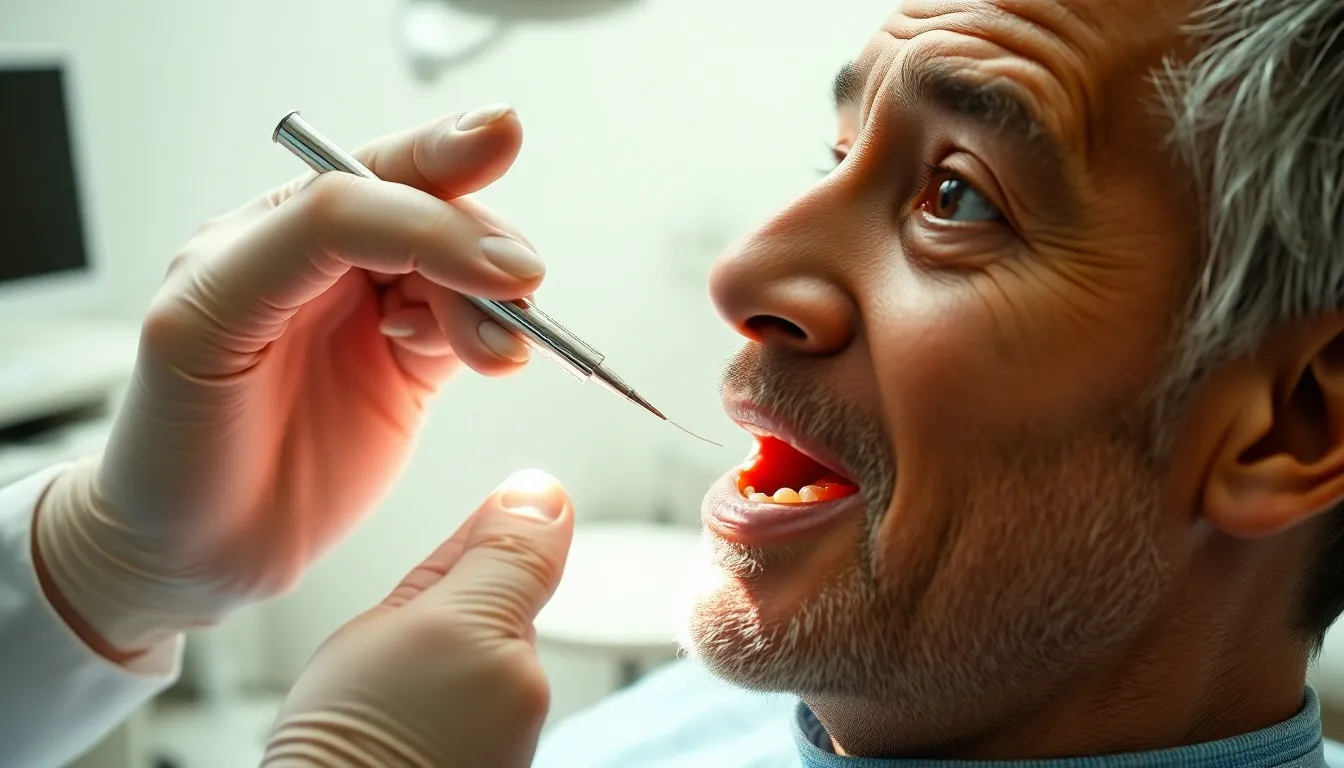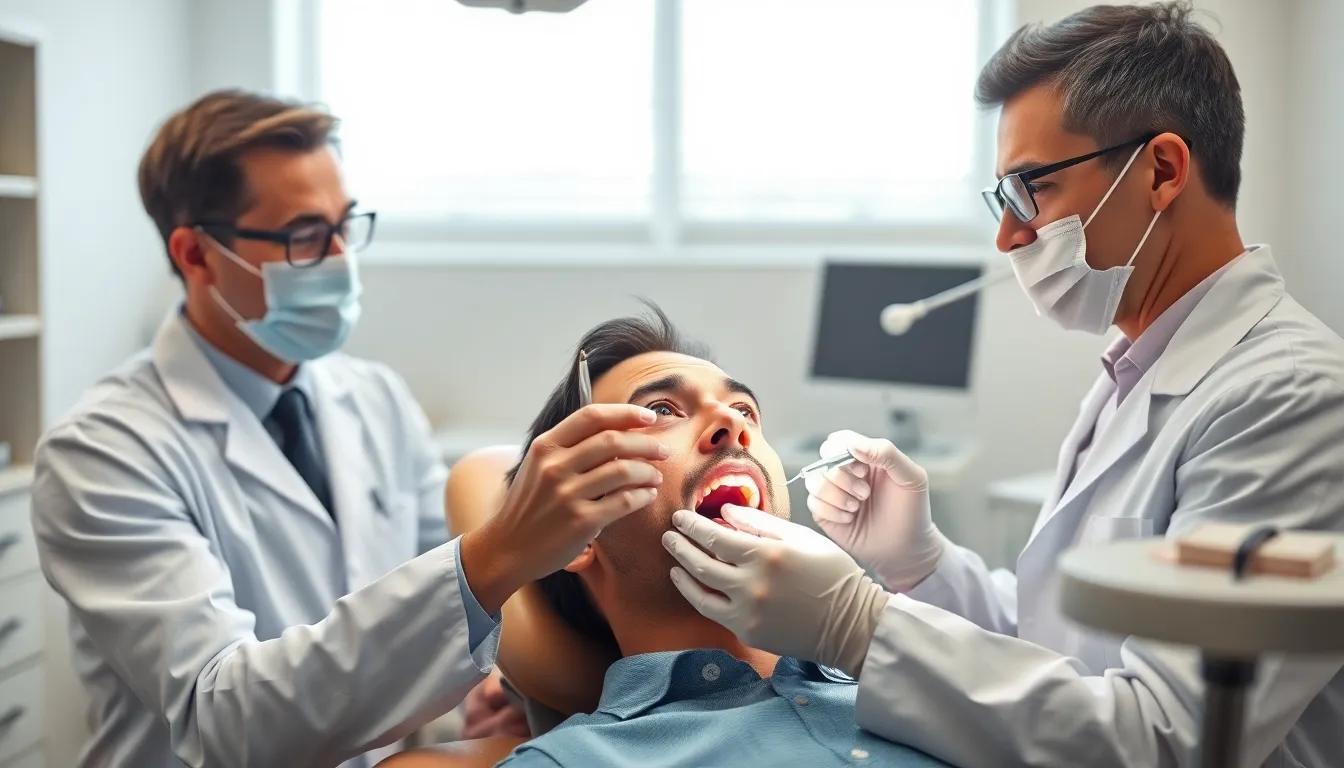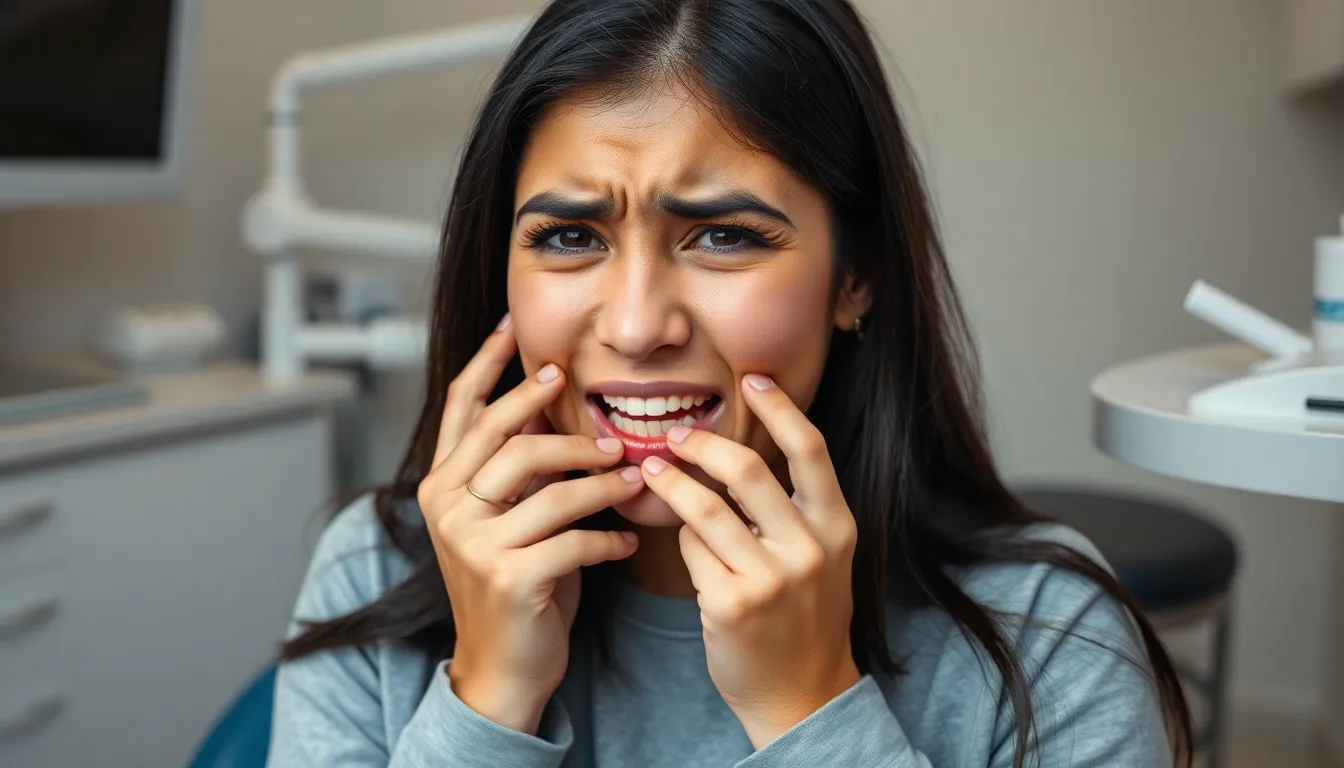Why do you bite your cheeks? If you’ve ever caught yourself mindlessly gnawing on the inside of your mouth, you’re not alone. This surprisingly common habit affects millions of people and can range from an occasional nibble to a chronic, painful problem.
Whether it happens while you’re concentrating, feeling anxious, or even during sleep, cheek biting can be more than just an annoying habit. Understanding why you bite your cheeks is the first step toward breaking this cycle and preventing the discomfort, sores, and potential long-term damage it can cause.
Understanding Cheek Biting: A Common Habit
Cheek biting manifests as a repetitive behavior where you nibble or bite the inside of your cheeks, lips, or tongue. This habit affects approximately 3% of adults in the United States, though many more experience occasional incidents. During stressful meetings, challenging exams, or intense concentration, many people unconsciously begin to chew on their inner cheeks.
One of my patients, Sarah, came to me after years of chronic cheek biting that left her with painful sores. “I didn’t even realize I was doing it until my dentist pointed out the damage,” she told me during her first appointment. Sarah’s experience mirrors what many chronic cheek biters discover – this habit often operates below conscious awareness.
Cheek biting typically occurs in three distinct patterns: accidental, chronic, and during sleep. Accidental biting happens when you’re eating quickly or talking while chewing. Chronic cheek biting, medically termed “chronic morsicatio buccarum,” represents a body-focused repetitive behavior similar to nail biting or hair pulling. Nighttime cheek biting commonly affects people with sleep disorders or those experiencing high stress levels.
The inside of your mouth contains sensitive tissue that’s vulnerable to damage from repeated biting. When examining patients with this habit, I’ve observed white patches, scar tissue, and inflamed areas where the teeth repeatedly traumatize the tissue. These injuries can lead to infections, painful ulcers, and permanent tissue changes if the behavior continues long-term.
Medical Reasons Behind Chronic Cheek Biting
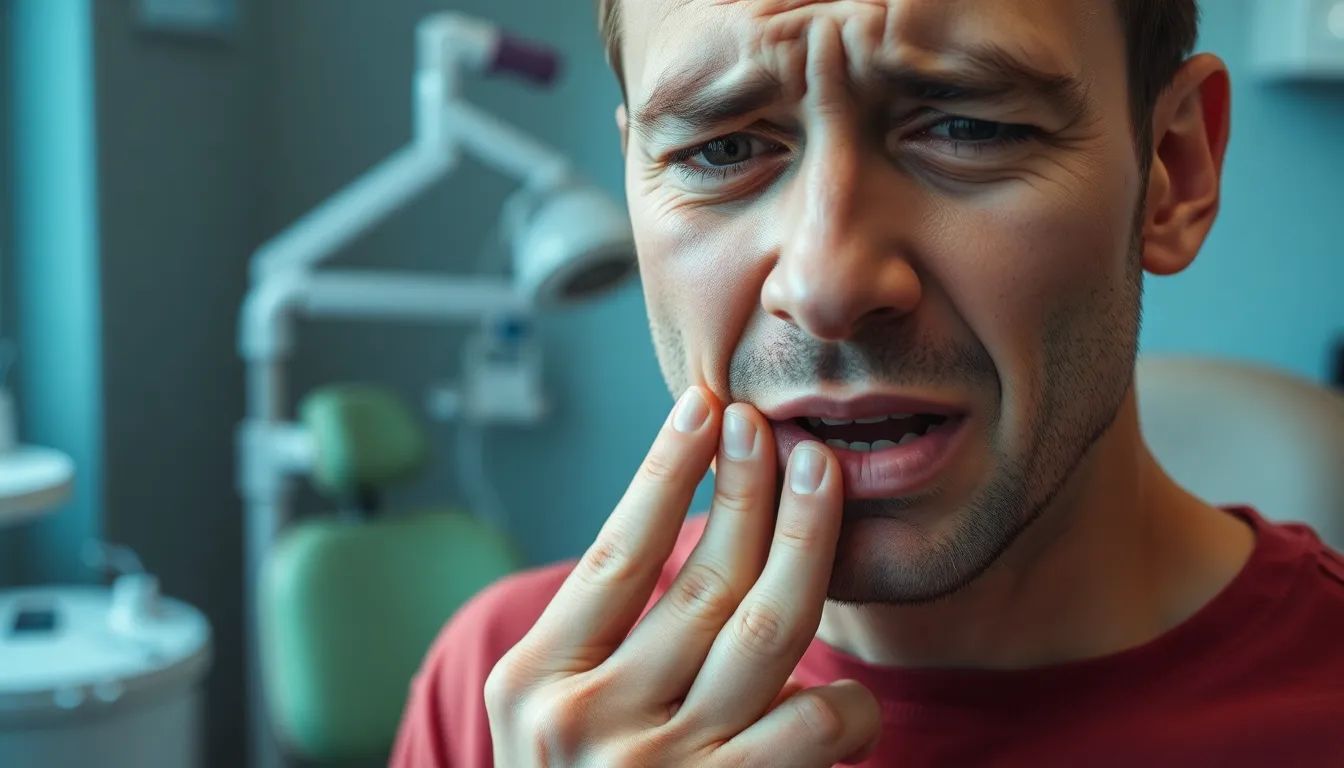
Chronic cheek biting often stems from underlying medical and dental conditions rather than just being a bad habit. Understanding these physical causes can help you address the root issue and find appropriate treatment options.
Temporomandibular Joint (TMJ) Disorders
TMJ disorders directly affect your jaw function, creating conditions that increase the likelihood of cheek biting. The temporomandibular joint connects your jawbone to your skull, and when it becomes inflamed or dysfunctional, normal mouth movements become compromised. Patients with TMJ typically experience jaw stiffness, limited movement, or even jaw locking, making it easier to accidentally bite their cheeks during regular activities like eating or speaking. Common symptoms include pain in the chewing muscles, clicking or popping sounds when opening the mouth, and sometimes ringing in the ears or dizziness. Habits such as teeth grinding (bruxism), jaw clenching, excessive gum chewing, and nail-biting frequently accompany TMJ disorders and can worsen cheek biting incidents.
Dental Misalignment Issues
Malocclusion, or dental misalignment, creates an environment where accidental cheek biting happens more frequently. When your teeth don’t align properly, your bite becomes imbalanced, causing teeth to catch the soft tissues of your mouth during normal functions. This misalignment affects how your jaw moves and how efficiently you chew, increasing the chances that you’ll accidentally bite your cheeks. Crooked teeth, overbites, underbites, and crossbites all represent common forms of malocclusion that might contribute to chronic cheek biting. Your teeth should work together harmoniously during chewing and speaking, but misalignment disrupts this natural coordination, putting your cheek tissue at risk of getting caught between teeth.
Stress and genetic factors can exacerbate both TMJ disorders and dental misalignment issues, though contrary to popular belief, braces and minor bite problems don’t directly cause TMJ disorders. They may, but, contribute to overall discomfort in some individuals, indirectly affecting cheek biting behavior.
Psychological Factors That Trigger Cheek Biting

Psychological factors play a important role in chronic cheek biting behavior, often serving as underlying triggers that perpetuate this habit. Understanding these mental and emotional components can provide valuable insights into why you might bite your cheeks repeatedly.
Stress and Anxiety Connection
Chronic cheek biting frequently stems from stress and anxiety, functioning as an unconscious coping mechanism during tense situations. Your body responds to anxious thoughts by captivating in repetitive behaviors like cheek biting, similar to nail biting or hair pulling. This action temporarily relieves anxiety by creating a physical distraction from emotional discomfort. Research confirms that many people bite their cheeks during periods of intense concentration or when facing stressful circumstances. The behavior creates a momentary sense of relief, though it’s quickly followed by pain and irritation of the delicate oral tissues.
Health Consequences of Chronic Cheek Biting
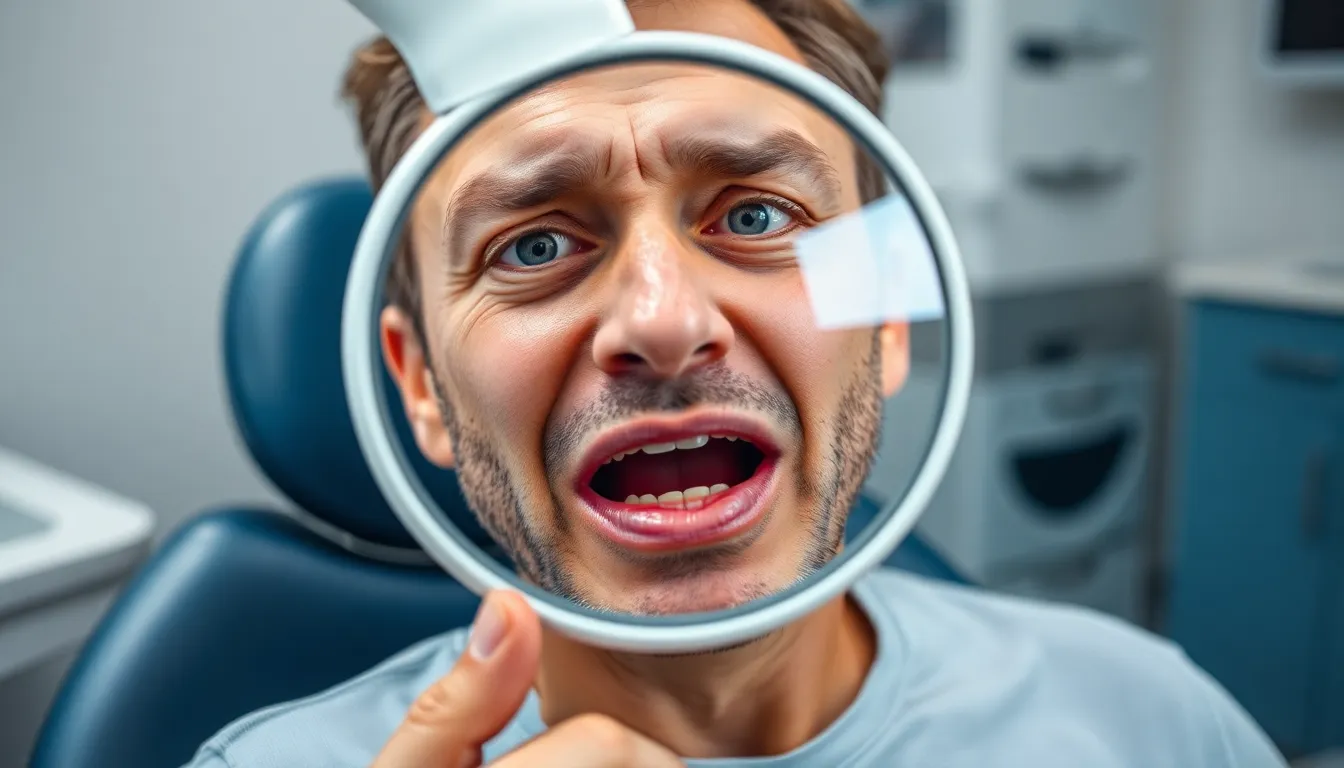
Chronic cheek biting creates important damage to oral tissues and can lead to various complications that impact your overall oral health. Understanding these consequences helps highlight why addressing this habit is crucial for maintaining a healthy mouth.
Oral Tissue Damage
Repeated biting traumatizes the inner cheek lining, creating irregular texture changes and visible alterations in the mouth’s soft tissues. Your cheeks develop sores, ulcers, swelling, and inflammation in response to this ongoing trauma. Ironically, these changes often perpetuate the biting cycle – many patients report attempting to “smooth out” rough patches with additional biting, which only worsens the condition. The damaged tissue feels painful, especially when eating acidic or spicy foods, creating discomfort that interferes with daily activities. Over time, your cheek’s mucous membrane thickens and develops a white, irregular appearance that dentists can easily identify as characteristic of chronic biting behavior.
Infection Risks
Open wounds from persistent cheek biting create entry points for bacteria, significantly increasing your infection risk in the oral cavity. Bacteria naturally present in your mouth can infiltrate these lesions, causing localized infections characterized by increased pain, redness, and swelling. Left untreated, these infections potentially spread to surrounding tissues, creating more serious complications. Patients with compromised immune systems face particularly high risks from these oral infections. Dr. Harris notes that “Many patients don’t realize that chronic cheek biting creates a perfect environment for bacterial growth – I’ve treated many cases where what started as a ‘harmless habit’ progressed to a painful infection requiring antibiotic intervention.” Long-term tissue damage from repeated biting and healing cycles can result in permanent scarring and changes to the mouth’s architecture, potentially interfering with proper oral function and contributing to broader issues like gum disease if it disrupts your normal oral hygiene routine.
Effective Strategies to Stop Cheek Biting

Breaking the habit of cheek biting requires intentional strategies focused on awareness and behavioral change. Addressing this common issue begins with understanding your exact triggers and implementing targeted answers to reduce or eliminate the behavior.
Mindfulness Techniques
Mindfulness meditation creates greater awareness of your cheek biting tendencies as they occur in real-time. Regular practice helps you recognize the physical sensations that precede biting behaviors, allowing you to interrupt the pattern before it starts. Guided imagery offers another powerful approach by redirecting your focus when the urge to bite arises, replacing the habit with visualization of peaceful scenarios or positive outcomes. Self-monitoring through a simple log or diary tracks your cheek biting incidents, revealing important patterns about when and why you engage in this behavior. Many patients report important reductions in cheek biting after implementing a daily mindfulness practice of just 5-10 minutes, particularly when combined with stress management techniques such as deep breathing exercises.
Dental Answers and Mouth Guards
Custom-fitted mouth guards provide a physical barrier that protects your cheeks from unconscious or sleep-related biting episodes. Orthodontic treatment addresses misaligned teeth that may cause accidental cheek biting during normal chewing functions, eliminating a common structural cause of tissue damage. Regular dental check-ups enable professionals to monitor tissue healing and provide personalized recommendations based on the exact pattern of your cheek biting. Dental professionals can also identify signs of infection or extensive damage that might require additional treatment. Specialized dental appliances designed for daytime use offer a less intrusive option for those who find traditional mouth guards uncomfortable but still need protection during high-stress situations.
When to Seek Professional Help
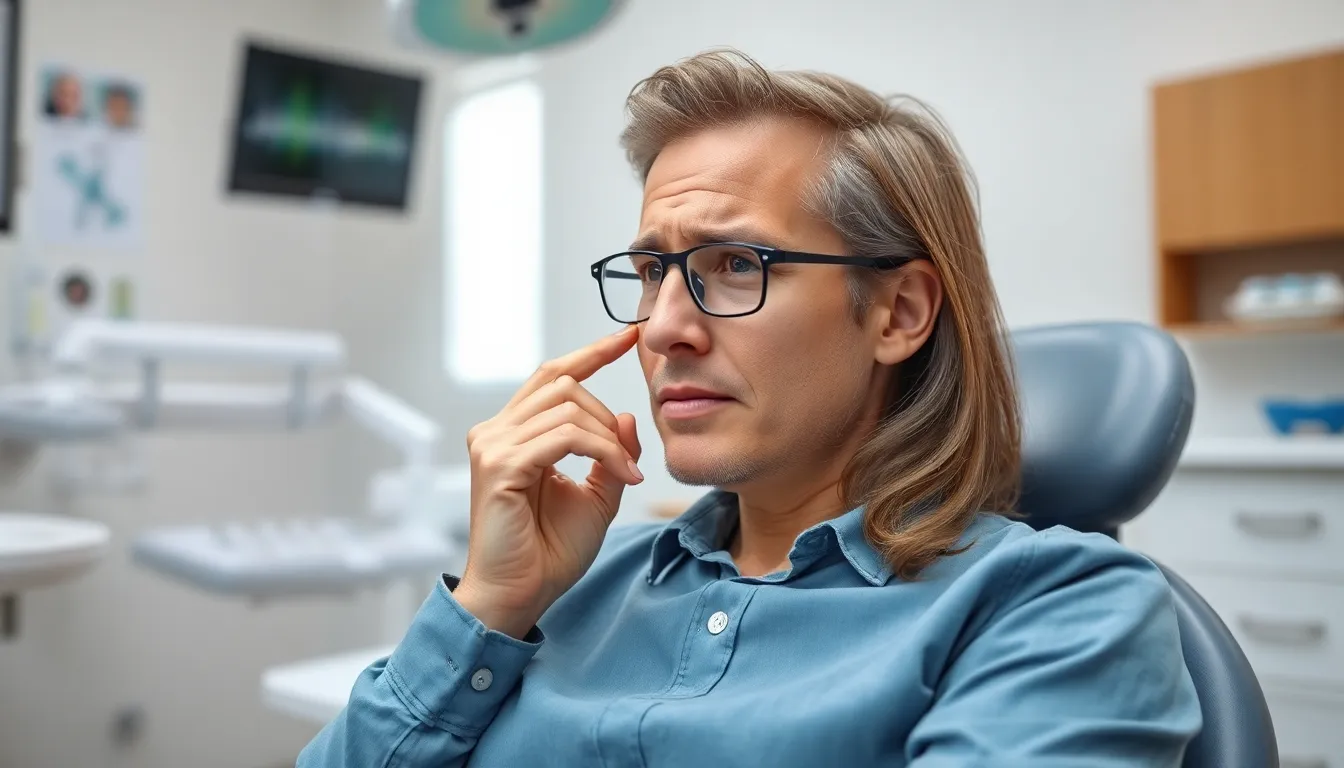
Recognizing when your cheek biting requires professional intervention is crucial for preventing complications and addressing underlying causes. Persistent or severe cheek biting that causes pain, swelling, or bleeding in your mouth demands immediate attention from a healthcare provider. Oral habits that interfere with your daily activities or compromise your oral health shouldn’t be ignored, as they can lead to chronic injury over time.
Dental professionals are essential when you suspect misaligned teeth or dental appliances might be contributing to your cheek biting problem. Your dentist can assess your bite alignment and recommend appropriate treatments to reduce accidental cheek biting during normal oral functions. Mental health specialists become important partners in treatment when your cheek biting is connected to important stress, anxiety, or emotional distress.
Regular monitoring by professionals provides the best chance of early intervention, which can prevent serious complications like infections or permanent tissue damage. Many patients initially dismiss their cheek biting as a minor annoyance, only to discover that addressing it early could have prevented painful oral lesions and tissue changes.
Dr. Todd B. Harris often shares the story of a patient who ignored their chronic cheek biting for years: “By the time they sought help, they had developed important scarring and persistent oral pain. With earlier intervention, we could have implemented simple behavioral techniques and possibly prevented years of discomfort.”
If you notice your cheek biting habit is accompanied by other body-focused repetitive behaviors like nail biting or hair pulling, this pattern suggests an underlying psychological component that’s best addressed by specialized care. Remember that seeking help isn’t just about treating the physical symptoms—it’s about understanding and addressing the root causes of this potentially harmful habit.
Conclusion
Breaking the cycle of cheek biting requires addressing both its physical and psychological roots. Whether your habit stems from dental misalignment stress or occurs unconsciously during sleep it’s entirely possible to overcome with the right approach.
Start by increasing your awareness of when and why you bite your cheeks. Consider protective measures like mouth guards for immediate relief while working on long-term answers. Don’t hesitate to consult dental professionals for physical concerns or mental health specialists for underlying anxiety issues.
Remember that healing takes time and patience. With consistent effort and professional guidance you can protect your oral health and free yourself from this uncomfortable habit for good.
Frequently Asked Questions
What is cheek biting and how common is it?
Cheek biting is a repetitive behavior where individuals nibble or bite the inside of their cheeks, lips, or tongue. It affects approximately 3% of adults in the United States, though many more experience occasional incidents. This habit often occurs during moments of concentration, anxiety, or even sleep and can range from occasional to chronic behavior.
What are the different patterns of cheek biting?
There are three distinct patterns of cheek biting: accidental (happening randomly during eating or speaking), chronic (medically termed “chronic morsicatio buccarum,” similar to other body-focused repetitive behaviors), and sleep-related (occurring unconsciously during sleep). Each pattern has different causes and may require different approaches to treatment.
Can dental problems cause cheek biting?
Yes, dental problems can contribute to cheek biting. Temporomandibular joint (TMJ) disorders can compromise jaw function, increasing the likelihood of cheek biting. Dental misalignment (malocclusion) can also lead to accidental cheek biting by disrupting the natural coordination of teeth during chewing and speaking. These conditions may be exacerbated by stress and genetic factors.
Why do people bite their cheeks when stressed?
Cheek biting often serves as an unconscious coping mechanism during stressful situations. It provides temporary relief from anxiety by creating a physical distraction from emotional discomfort. Research shows many individuals engage in this behavior during periods of intense concentration or stress, creating a cycle of momentary relief followed by pain and irritation.
What health problems can chronic cheek biting cause?
Chronic cheek biting can lead to irregular texture changes, sores, ulcers, swelling, and inflammation in the mouth. Open wounds increase the risk of infections as bacteria enter these areas. Long-term damage may include permanent scarring and changes to mouth architecture. The ongoing trauma can create painful conditions, especially when eating certain foods, and potentially contribute to broader issues like gum disease.
How can I stop biting my cheeks?
To stop cheek biting, try mindfulness techniques like meditation to recognize and interrupt biting patterns. Keep a log to identify triggers. Consider dental solutions such as custom-fitted mouth guards to prevent unconscious biting, and explore orthodontic treatments if misalignment contributes to the habit. Regular dental check-ups can help monitor tissue healing and provide personalized strategies.
When should I seek professional help for cheek biting?
Seek professional help for cheek biting if it’s persistent or severe, causes pain, swelling, or bleeding, or if you’ve tried self-help strategies without success. Dental professionals can assess bite alignment and recommend treatments, while mental health specialists can address underlying stress or anxiety. Early intervention is crucial to prevent complications like infections or permanent tissue damage.


